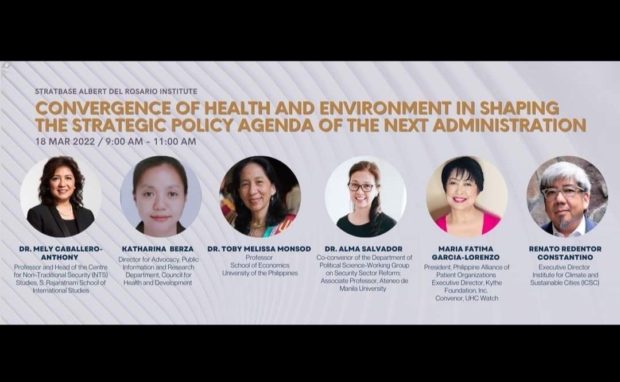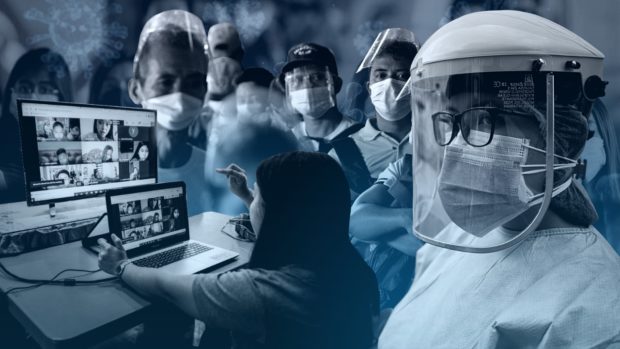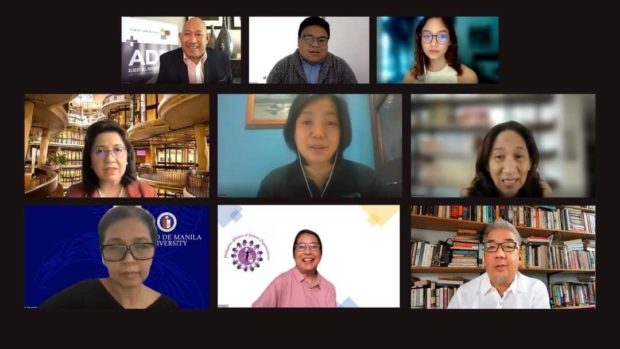Health reform in PH through people-centered health agenda
MANILA, Philippines—The COVID-19 pandemic, which has been battering countries across the globe for two years now, has laid bare cracks and gaps in the Philippines’ health care system―which experts said already existed even before the current pandemic emerged.
The pandemic has shone the spotlight on the country’s health system and has highlighted and magnified longstanding issues such as corruption, inclusion, and brain drain.
Filipino health workers have also sought and pleaded countless times for an increase in salaries and better compensation for their efforts during the pandemic despite knowing the risks.
Lauded as heroes in scrubs, these medical professionals on the frontline of the battle to keep COVID-19 cases from getting out of control had been through exhaustion and being overwhelmed by often 24-hour work. Many have lost their lives, falling victims themselves to the disease which has no known cure yet.
READ: PH health workers: A pandemic of big work, small pay
Article continues after this advertisementIn a study entitled “Beyond Health Measures: Towards a Genuine People’s Health Agenda,” Dr. Eleanor A. Jara, Dr. Magdalena A. Barcelon, and Dr. Katharina Anne D. Berza further discussed topics about reforming the country’s tattered health system.
Article continues after this advertisementIn their study, which was launched at a visual forum organized by leading think-tank Stratbase ADR Institute last week, the authors―all of whom are medical experts―argued that health measures should be anchored on a people-centered health agenda.
People-centered approach
“Health services should neither be an issue of privilege nor charity. This may be ensured by empowering communities that are able to provide preventive services and assert their right to avail of curative services from public health facilities,” the authors noted.
“A people-centered health care system catering to the needs of the poor should be founded on the basic tenets of equity, social justice, and people’s rights,” they added.
According to the World Health Organization (WHO), people-centered care or person-centered care refers to approaches and practices that see the person as a whole with many levels of needs and goals, with these needs coming from their own personal and social determinants of health.
The Health Foundation, an independent charity in the United Kingdom (UK), meanwhile explained that person-entered care allows a person to “develop the knowledge, skills and confidence they need to more effectively manage and make informed decisions about their own health and health care” with the support from health and social care professionals.
“All social services, goods, and facilities must be available, accessible, culturally acceptable, and of good quality,” the authors of Beyond Health Measures said.
“Thus, even as the government seeks to address the most urgent health problems of Filipinos today, it must also solve long-standing issues to establish a free, comprehensive, and progressive health care system adhering to these universal principles,” they continued.
Berza, author of the study and director for advocacy at the Public Information and Research Department Council for Health and Development, pointed out that many Filipinos still die of preventable and curable diseases.
These included vaccine-preventable diseases such as dengue, with 89 deaths recorded by WHO from January to April last year.
READ: Dengue fever: Upstaged but not outmatched by COVID-19
“The Department of Health should be strengthened by making the agency more accountable to our national health care system and emboldened to cater to the health needs of the Filipino people,” she said.
‘All is not lost’
While the country’s health system might be in a dire condition due to mounting issues confronting it, the authors of the study―Jara, Barcelon, and Berza―believed that change is still possible “however bleak the public health situation is.”
According to them, a system that “can weather all pandemics and value the people’s health needs and overall well-being” can only be possible through the will and sincerity of the country’s decision-makers to genuinely strengthen the public health system.
Aside from initiatives of decision-makers, the authors likewise highlighted the need for an adequate budget to provide free and comprehensive health for the public, especially the poor.
“The primary and overriding goal must be the provision of free health services of citizens as part of publicly-funded social services,” Berza said during the online Stratbase-hosted forum.
Maria Fatima Garcia-Lorenzo, Universal Healthcare Watch (UHC Watch) co-convenor and President of the Philippine Alliance of Patient Organizations, also suggested the use of digital technology in an integrated people-centered national health care system.
“The use of electronic medical records will ease the patients’ navigation from one health center to another. And patients’ data, which includes information on cultural and family background, can assist medical teams in understanding the patient and reaching appropriate diagnosis and treatment,” said Garcia-Lorenzo who was a streak holder reactor at the same forum.
“This will also lessen the patients’ out-of-pocket expenses from diagnostic procedures,” she added.
“The next secretary of Health must have integrity, have very good managerial skills, and should be innovative enough to integrate into the health agenda programs that will address issues on hunger, environment, etc., and bold enough to shift the health system from being doctor-centric to becoming patient-centric.”
May 9 election plays crucial role
The upcoming elections and the public’s choice for the next leader of the country, according to Stratbase ADRI president Professor Victor Andres “Dindo” Manhit, will also play a crucial role in achieving health reform.
“Our next leaders should give high priority to addressing the mounting socio-economic and health issues brought by the COVID-19 pandemic, as well as continuing political issues such as corruption,“ he said in his statement during the forum.

Some of the key participants at the public health forum organized by Stratbase. PHOTO FROM STRATBASE
In the study, the authors noted that “the critical and facilitatory role of civil society, non-governmental organizations (NGOs), people’s organizations, the academe, and responsible private sector enterprises should be recognized and institutionalized to ensure transparency, accountability, and social inclusion in the overall health care system of the country,”
The same sentiment was echoed by Manhit, who said that indeed, health reform in the country “cannot be done by one president that we will elect, but it needs a whole-of-society approach.”
RELATED STORY: Human security is closer to home than we think
TSB

